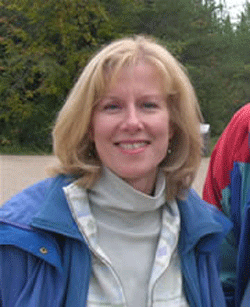COMMENTARY: Behind the Greens
10 Questions for Rebecca Wodder, President of American Rivers
Rebecca Wodder is the president of American Rivers, the nation"s leading river conservation organization, committed to "standing up for healthy rivers so our communities can thrive." The group was founded in 1973, and now boasts more than 65,000 members and supporters. Wodder previously worked as a legislative assistant for then-Senator Gaylord Nelson (D-WI), and fought for protection of Alaska’s wild rivers and lands in the landmark 1980 Alaska Lands Act. In 1981, she went to The Wilderness Society, where she worked for 14 years on behalf of wilderness and public lands. Wodder also helped found EarthShare, a workplace giving campaign for environmental causes. She was named 1998 “Woman of the Year” by the American Sportfishing Association for her work on behalf of clean, healthy rivers. Her career in conservation started with the first Earth Day in 1970.
E Magazine:What is the most pressing environmental issue in 2007?
Rebecca Wodder: Getting past apathy without overshooting to despair, and beginning the serious work of stopping and reversing global warming.
What is your greatest environmental fear and why?
That the threat of global warming is so large and so daunting that people won"t believe that we can respond effectively. That U.S. leadership won"t materialize on this issue. That developing nations will add so much new greenhouse gas to the atmosphere that anything developed nations do won"t matter. That we"ll just watch while the planet burns.
Who is the most significant environmental figure of our time?
I don"t know who it will be yet, but Al Gore is in the lead because of his dedication and effectiveness in putting global warming in front of the American public.
Are you a vegetarian? Why or why not?
I am not a total vegetarian, but I make a point of eating "low on the food chain" as often as possible. I eat almost no beef or pork because of the amount of resources consumed in producing food via cattle or pigs, and because I object to factory farms.
As an eco-advocate you undoubtedly try to "walk the talk." But what do you have the most trouble changing about yourself or your lifestyle?
I"ve just finished Bill McKibben"s new book, Deep Economy, and I"m a strong supporter of his call for a new economic model based on sustainability. I would like to get my food, power, etc. much more locally than I do right now.
Who could be the environmental movement"s most unlikely allies?
I would like to see a much stronger and more vital link between the faith community and the environmental community. We are walking along a parallel path with the "creation care" movement. I think the obstacles to working together can be overcome and that we must get together to succeed in the global warming fight. In partnership with a faith-based group, Earth Ministry, American Rivers has just completed a Sunday school teaching module called "By the Waters" that highlights rivers in the Christian tradition and leads to church-based river cleanups. We are looking for ways to work with other faith traditions as well.
Which environmental group do you most admire and why?
I am lucky that I already work for the group that I most admire, American Rivers. I"m also a huge fan of the work of Center for the New American Dream, which is offering practical choices for living a more sustainable and high quality of life in the U.S.
Which green trend do you most distrust?
The idea of paying a penance for your carbon emissions. This enables people to continue to live unsustainably and assuage their guilt by paying a fee. That"s not the direction we need to be heading.
What"s your favorite Earth-friendly mode of transportation?
Car-pooling because it builds community while reducing pollution (especially if the car gets great gas mileage).
How could the environmental movement reinvent itself?
The environmental movement has allowed our opponents to create an image of us as being anti-people and some of our pronouncements have given this lie some legs. The environmental movement is made up of people who want to protect and restore a high quality of life on Earth for all, including all future generations of people. We want what most people want—health, prosperity and a high quality of life for ourselves, our families and our communities. The environmental movement has so much to offer in this regard, but until we rewrite our own story, we won"t be heard.
CONTACT: American Rivers

